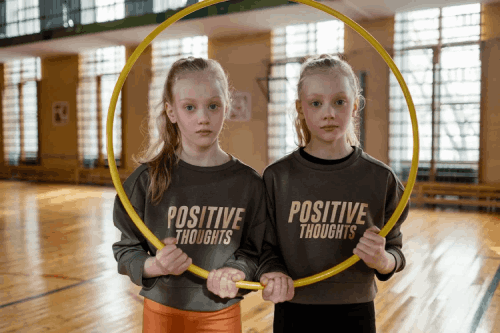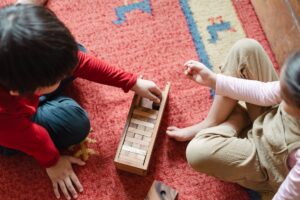Those who play rarely become brittle in the face of stress or lose the healing capacity for humor.” – Stuart Brown, MD
The phrase ‘It’s just child’s play’ belies the profound importance that play has on a child’s physical, mental, and emotional development. As stated by Dr. Stuart Brown, it has a key role in boosting a child’s resilience, as it is one of the best means to teach kids the value of the growth mindset and social interaction. As found in a 2023 study published in the journal Cureus, it allows kids to communicate non-verbally, symbolically, and in an action-centered manner. As such, it has the potential to be a coping strategy for children who are experiencing stress. Play allows kids to express their imagination and fantasy fully and openly, giving them a sense of control over their worlds. Read on to discover the many more ways that play can help children grow happily and healthily.
Building Social Skills
Research indicates that playing with others is an essential means for kids to learn how to read social cues, take turns, resolve conflicts, and develop a host of additional social skills. It activates the brain’s reward circuitry but does not activate negative stress responses, leading to improved attention and action. It allows kids to discover the verbal and non-verbal language that works best when interacting with others. Children can learn to read others’ expressions, take note of when somebody needs space, or be respectful when someone needs more time with a toy they want to play with. It also provides kids with communication difficulties to interact with others via shared interests. Finally, it provides important bonding moments between parents and children, allowing kids to “take the lead” and helping to build treasured family memories.
Honing a Child’s Confidence
Playtime often allows kids the chance to come across challenges and find creative solutions to them. Think back to the times you may have had to build a castle with a limited number of pieces, or had to put together a block structure or car or railroad track. Parent’s choice of toys can have a powerful effect on children’s abilities in certain areas. For instance, providing kids with inclusive toys (such as gender-neutral toys or toys that can be easily used by disabled children) can help them boost their confidence to shine in a variety of scenarios. Doing so can help bridge the STEM gap between boys and girls. It can also knock down various stereotypes about the capabilities of disabled kids. Kids benefit from trying out activities they already know and love, as well as new ones. Giving children access to a wide array of games and toys can unleash passions they would not discover if they were not given this opportunity.
Building a Bond with the Great Outdoors
One study has shown that outdoor play provides kids with opportunities to assess risks and sharpen their movement skills through repeated movements. By jumping, climbing, and tinkering with loose components in the outdoors such as barrels and tires, kids can also boost their immunity. One study found that doing so can boost skin bacterial diversity and modify gut bacteria. While they are outdoors, children are called to take upon a host of reasoned risks. In doing so, they boost their resilience and learn how to negotiate the outdoors wisely and respectfully. Nature author, Richard Louv, argues that outdoor recreational activity is vital to kids’ mental development. He describes the outdoors as his “Ritalin” as a child. Various studies back his assertions. Studies have shown, for instance, that spending just a few minutes in nature lowers stress levels. It also enhances focus, helps battle anxiety, and improves mood.
When it comes to play, scientists agree that it is vital to children’s physical, mental, and emotional development. It provides children with a perfect outlet for stress. It enables them to feel “in control” of their environment and to express themselves without fear of judgment. It also enables them to expend excess energy, interact with others, and learn vital verbal and non-verbal communication skills. When it comes to boosting kids’ mental health, the importance of outdoor play cannot be ignored. Nature has a special ability to improve mood while teaching kids how to make smart decisions.
Source:



